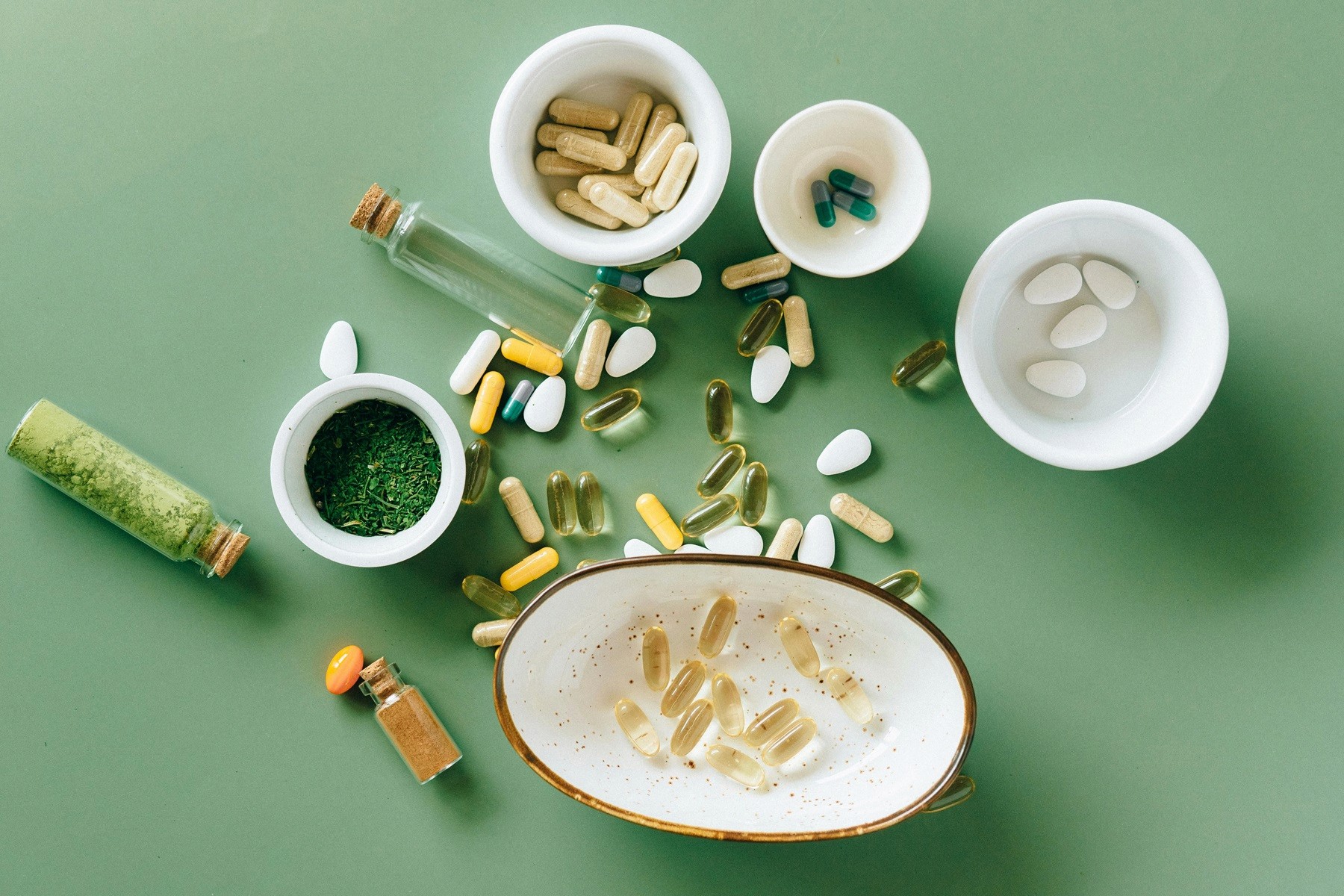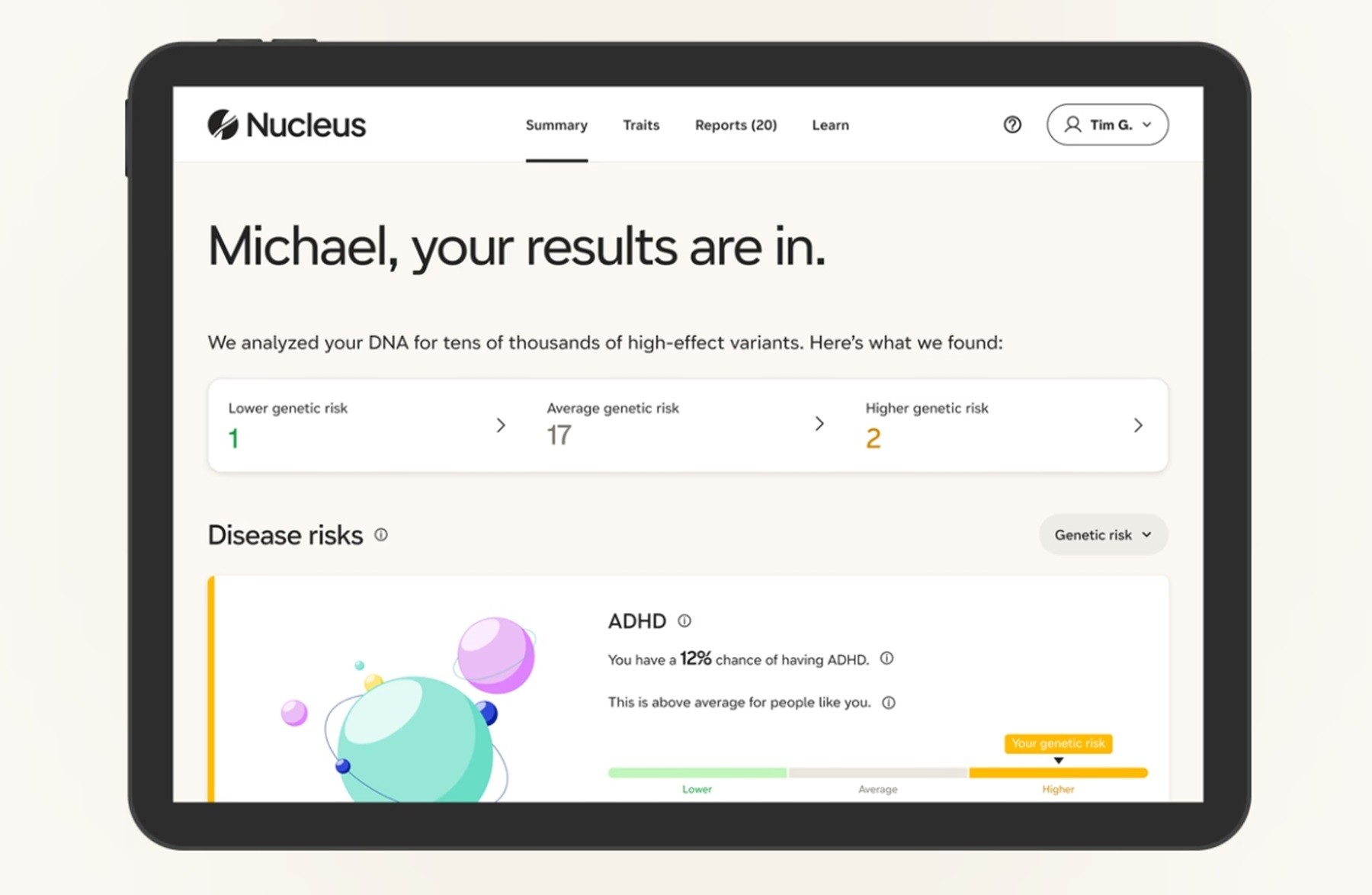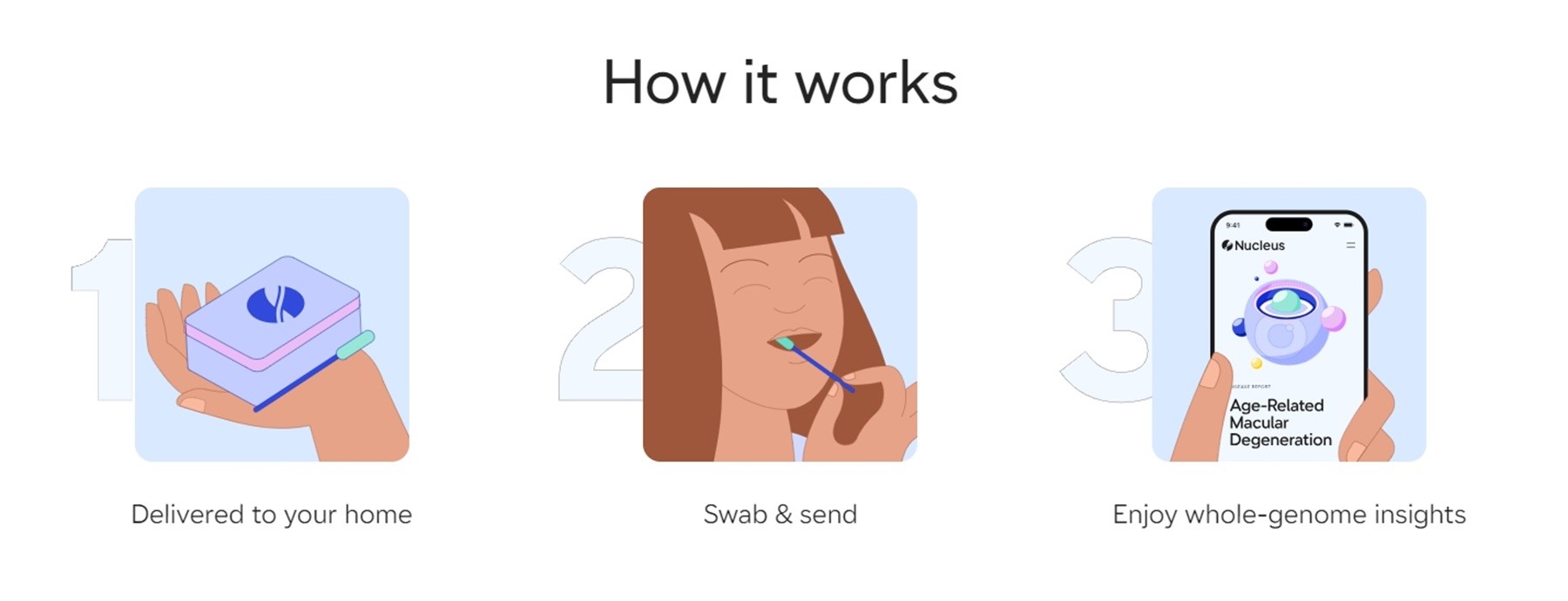Supplements have long been a staple of biohacking, helping many optimize their health and performance. Still, as our understanding of and interest in mental function has grown significantly, so has the popularity of adaptogens and nootropics — substances that allegedly boost cognition and reduce stress.
Despite their increasing use, nootropics and adaptogens are still largely unexplored by research. Companies selling these supplements or products containing them make big promises about their effects, but it’s important to look beyond the marketing claims.
We’ve reviewed the existing studies on nootropics and adaptogens to explain whether they’re effective and safe, what health issues they might help resolve, and what the most promising options are.
What’s the difference between adaptogens and nootropics?
Adaptogens and nootropics are substances that are said to improve brain function and health. While they can have multiple effects, these substances differ in their primary focus. Adaptogens are used for their mental health effects and stress management, while nootropics aim to boost cognitive performance.
Adaptogens, typically found in plants and mushrooms, are thought to help the body adapt to stress. When stressed, the body triggers the fight-or-flight response, releasing hormones such as cortisol. Adaptogens may reduce the levels of these hormones and thus help the body manage the stress response, reduce its physical impact, and restore homeostasis.
Adaptogens can be natural or synthetic, though natural ones, such as ginseng, rhodiola, and ashwagandha, are much more common. Synthetic adaptogens, which include bromantane, bifonazole, and methyl, are usually called actoprotectors.

Source: Nataliya Vaitkevich
Nootropics are said to affect various cognitive functions, such as learning, memory, alertness, and creativity, which is why people use them when working or studying.
Their mechanisms of action tend to vary and are not fully understood yet. Some nootropics may affect the activity of neurotransmitters, while others can help supply oxygen to the brain.
Natural nootropics are highly widespread, and some, like caffeine, L-theanine, and omega-3, can even be found in foods and drinks consumed regularly. On the other hand, those who suffer from neurological conditions or ADHD may get prescribed synthetic nootropics like modafinil and amphetamine.
Nootropics and adaptogens: Effectiveness, safety, and availability
It’s important to note that the research on adaptogens and nootropics is limited. While scientific and anecdotal evidence suggests that these substances can be beneficial, we still need more human trials to know whether they’re effective and, more importantly, safe.
The same applies to the optimal dosage, administration methods, and applications across different populations, which we still don’t know with certainty.

Source: Chokniti Khongchum
The most researched, well-understood, and regulated substances are synthetic nootropics used to treat conditions like Alzheimer’s and narcolepsy. Still, their effects on healthy individuals are unknown, and you can’t buy them legally without a prescription. That’s why we won’t discuss these substances further in this guide.
Natural nootropics and adaptogens are usually available over the counter as they’re generally less potent and safer than synthetic derivatives. You should still consult your healthcare provider before taking any supplements affecting your body functions.
Though they’re generally safe, you may still experience some side effects due to your unique physiology. More importantly, they may interact with your medications or other supplements you’re taking.
Another thing to consider is that the FDA doesn’t regulate herbs and dietary supplements as strictly as medications, so products may vary in terms of ingredients, potency, and quality. So, if you opt for giving nootropics and adaptogens a try, only buy from reputable companies.
Bonus read: Check out our detailed review of Limitless Life Nootropics.
What are the best adaptogens and nootropics?
Some substances like ashwagandha and ginseng have many benefits and belong to both categories. Their effects often expand beyond their primary nootropic and adaptogenic properties, so they have various use cases.
In the following sections, you’ll learn about common nootropics and adaptogens and the physical and mental health aspects they may help with, including:
Sleep
Energy
Exercise
Longevity
Mood
1. Best adaptogens and nootropics for sleep
While consistent, high-quality sleep is crucial for your physical and mental health, it’s not that easily maintained. Luckily, some adaptogens and nootropics may help you get a good night’s rest, including:
Ashwagandha: This plant is so well-known for its sleep-promoting properties that its Latin name, Withania somnifera, refers to inducing sleep. Although people mostly use it to manage stress, ashwagandha may also improve sleep, including total sleep time, time spent in bed sleeping, and time needed to fall asleep.
Rhodiola: Rhodiola rosea has a slightly sedative and hypnotic effect and may help you sleep. One small study also suggests combining rhodiola with Nelumbo nucifera could improve sleep quality with fewer side effects.
Melatonin: Your body produces melatonin at night to time your circadian rhythm, that is, your internal clock, and prepare you for sleep. A melatonin supplement may help when you’re having difficulty sleeping or experiencing jet lag, though only for up to two months.
L-theanine: L-theanine, which you can get from green tea, is a well-known natural sleep aid. It has anxiolytic effects, so it may help you relax and get high-quality sleep without making you drowsy.
Lemon balm: Due to its mild sedative effects, lemon balm has been used to treat anxiety and insomnia in traditional medicine throughout history. Some sources also indicate that combining lemon balm and valerian root could be an effective sleep aid for some people.
Notable mentions: Other substances that may improve your sleep include holy basil, chamomile, and hops.

Source: Ana Danilina
2. Best adaptogens and nootropics for energy
The natural first choice when it comes to energy-boosting substances is caffeine — the most widespread psychoactive drug in the world. Caffeine makes you less sleepy by blocking your brain’s adenosine receptors, a neurotransmitter that induces relaxation. It can also increase the neurotransmitter acetylcholine, which is crucial for memory and other brain functions.
That said, caffeine can also have negative effects. By increasing your noradrenaline and norepinephrine levels, caffeine can raise your heart rate and blood pressure, leading to jitteriness and anxiety. Research suggests that L-theanine can reduce some of the arousal associated with caffeine, so combining these two substances may be helpful.
As for other energy boosters, recent studies indicate that theacrine, especially in combination with caffeine and methylliberine, could be a more effective and safer energy booster than caffeine alone.
Another nootropic that may increase your alertness and boost cognitive processes is creatine monohydrate. This supplement improves energy supply to tissues such as muscles and the brain, which is why so many athletes use it to boost performance.
The final supplement to mention is ashwagandha. Although a common sleep aid, ashwagandha was shown to improve overall well-being and thus increase energy levels, mental clarity, and focus in a few studies on healthy adults.

Source: Unseen Studio
3. Best adaptogens and nootropics for exercise
Some substances aid your regular workout routine by allowing you to perform better and see results more quickly. We’ve reviewed the most effective adaptogens and nootropics for exercise below:
Notable mentions: Other substances that may be beneficial for athletic performance include beetroot juice and extract and astragalus.

Source: Sam Sabourin
4. Best adaptogens and nootropics for longevity
Aging and longevity are complex phenomena that are difficult to measure, especially in humans. Still, the following nootropics and adaptogens may have potential anti-aging properties as they come with a wide range of health benefits:
Polyphenols: These micronutrients that naturally occur in fruits, vegetables, and other plant-based foods may delay aging because of their antioxidant, anti-inflammatory, and immunomodulatory effects. It is also believed that they benefit stem cells and promote tissue regeneration.
Ginseng: Studies indicate that ginseng can reduce oxidative stress and help the body get rid of free radicals — molecules that can damage cells and lead to aging. Ginseng may also help repair DNA damage and protect from aging-related conditions.
Apigenin: Research suggests that NAD enzyme levels reduce with age, which is associated with some neurodegenerative diseases and cancers. NAD levels may be restored with the help of apigenin, a flavonoid found in chamomile, parsley, celery, and various fruits and vegetables, as well as through NAD precursors like NR.
Royal jelly: Royal jelly is produced by worker bees to feed the larvae and the queen bees. Several animal and human studies suggest that it can modulate mechanisms of aging, such as reducing oxidative stress and supporting cell repair.
Bacopa monnieri: In Ayurveda medicine, bacopa has long been used to promote longevity and enhance cognition. Recent studies back up these claims, indicating that the plant may reduce oxidative stress, improve cognition, and protect from diseases like Alzheimer’s.
Notable mentions: Other substances that may have anti-aging effects include ginkgo, rhodiola, licorice root, cordyceps, and omega-3.

Source: trilemedia
5. Best adaptogens and nootropics for mood
Some adaptogens and nootropics may also help you manage your mental health and improve your mood. Here are the top picks:
Notable mentions: Other substances that may boost your mood include turmeric, L-glutamate, maca, and holy basil.

Source: Tirachard Kumtanom
How to get the most out of nootropics and adaptogens
If you want to try any of these adaptogens or nootropics, you should do so mindfully to maximize their value and avoid unwanted effects. By taking on a personalized approach and understanding your unique health predispositions and traits, you can design your supplement stack and optimize your performance more effectively.
Genetic testing, namely whole-genome sequencing, can be an excellent source of data-based insights into your health and potential risks for diseases and conditions. A simple and affordable way to access these insights is by getting a clinical-grade DNA test from Nucleus.
By analyzing close to 100% of your DNA, Nucleus can offer a comprehensive view of your genetic makeup and its potential influence on your health, traits, and overall life. These insights can inform your decisions on diet, supplementation, family planning, and other lifestyle choices, giving you more control over health outcomes.
Nucleus: Genetic insights that drive change
By taking Nucleus’ at-home DNA test, you can reveal a wealth of knowledge about your genome. Nucleus will analyze your DNA using cutting-edge whole-genome sequencing technology, targeting even rare genetic differences that other tests miss. This allows it to provide detailed reports with 99.9% accuracy.
The test will evaluate your genetic intelligence score and the genetic background of various other traits, such as:
BMI: Your tendency to gain and maintain weight
Muscle strength: Your muscle composition and potential for building strength
Longevity: Your potential lifespan as per the latest scientific breakthroughs
Your Nucleus results will also help you understand your risk for hundreds of conditions and diseases, including rare cancers, heart disease, and mental health conditions, so you can take action to prevent them. As your environment and lifestyle choices can impact the expression of your genes, Nucleus will account for these factors to calculate your absolute risk scores.
Nucleus’ reports are easy to follow thanks to clear language and data visualizations. You can also consult a geneticist from partner SteadyMD’s network if you have any concerns.

Nucleus, a fully regulated DNA platform, implements numerous measures to ensure the privacy of your data and the quality of its analyses.
Unlock the power of DNA with Nucleus
Nucleus Premium is one of the most affordable whole-genome tests currently on the market — it costs [PRICE.KIT_SOLO.ONE], which HSA and FSA may cover. When you purchase the kit, you’ll get all available health and trait reports, along with updates following scientific and platform advancements, as well as changes to your risk factors.

Taking the test is as simple as swabbing your cheeks — this process takes minutes. After you mail your samples, you can view your results in your secure online account within six to eight weeks.
To get started with Nucleus Premium, all you need to do is:
Fill out your personal information
Order the kit
You may also like…
We have other health optimization guides you can check out:
Featured image source: Nataliya Vaitkevich












